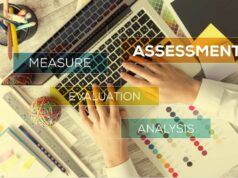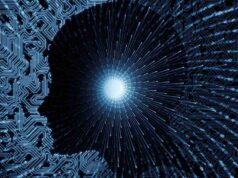Authored by Andre van Heerden
The unifying preoccupation of (liberal modernity) is the condition of those who see in the social world nothing but a meeting place for individual wills, each with its own set of attitudes and preferences and who understand that world solely as an arena for the achievement of their own satisfaction, who interpret reality as a series of opportunities for their enjoyment and for whom the last enemy is boredom.
–Alasdair MacIntyre in After Virtue
From the dawn of history, all over the world, individuals and communities have had to try and restrain the incessant demands of the Ego – hubris, greed, and a self-serving fictional account of reality. Now for the first time in the annals of humankind, a civilization has arisen that actively encourages the unleashing of the Ego. The world is your oyster – you are free to do and to acquire anything your will might choose.
In his 1985 book, The Image: A Guide to Pseudo Events in America, Daniel Boorstin, described the irony of modern society:
“When we pick up our newspaper at breakfast, we expect – we even demand – that it bring us momentous events since the night before…We expect our two-week vacation to be romantic, exotic, cheap, and effortless…We expect anything and everything. We expect the contradictory and the impossible. We expect compact cars which are spacious; luxurious cars which are economical. We expect to be rich and charitable, powerful and merciful, active and reflective, kind, and competitive. We expect to be inspired by mediocre appeals for ‘excellence’, to be made literate by illiterate appeals for literacy…to go to a ‘church of our choice’ and yet feel its guiding power over us, to revere God and to be God. Never have people been more the masters of their environment. Yet never has a people felt more deceived and disappointed.”
The oyster has become a cloister. The freedom promised by Modernity turns out to be epistemological ensnarement, a technological trap, and a moral morass. As great minds have pointed out from the beginning of the modern experiment, our choices have consequences, and our choices are determined by how we see the world.
What comes first in your life? Or, in other words, what is your first principle, your top priority?
_____
READ ALSO: Integrity and Leadership
_____
A simple enough question and most people would probably answer without giving the issue much thought. However, once people become more reflective, they usually find the question seriously challenging, unless of course, they are members of one or other of the major religious traditions, which many in the West today are not.
A person’s worldview is the most salient fact about them because it reveals his or her response to the question, “What is the meaning of life?”. Sooner or later, we all confront the central issue of what this life is all about, and our response is an indication of how we intend to conduct ourselves in relation to other people and the world at large. The answer we give to the question, whether it is carefully articulated or not, shapes the way we think about everything else.
The unexamined worldview is the greatest civilizational threat we face in the modern West today, corroding community, debilitating democracy, and making rational dialogue, and therefore leadership, all but impossible.
Why do so many people today refuse to examine what is, after all, their most important decision in life, allowing themselves to become the dupes of ideologues and charlatans? What comes first in your life?
The central message a young person today gets from state schooling and the media is that he or she is an autonomous self in a world of autonomous selves, all indifferent to the needs of others, and free to pursue uninterrupted self-gratification. Their commitment to this self-centered ideal is unassailable, and loyalties to family, religion, culture, and nation, which are seen as limitations on individual freedom, are dismantled by the state, which will brook no rivals to its authority.
Classical societies extolled the res publica, the entity that is held in common by all the people; modern liberal democracy has replaced it with what Patrick Deneen calls the res idiotica, an entity that promotes the private individual and selfishness. Hence the consumer society, a world of narcissism, unfettered choice, and transient relationships. State schooling has been a triumph of social control, producing uneducated Hedonists, incapable of allegiance to anything beyond their own immediate desires, and utterly docile in the face of the system that has enslaved them.
G K Chesterton saw what state schooling tries to obscure:
The whole point of education is that it should give a man abstract and eternal standards by which he can judge material and fugitive conditions.
In other words, a proper education helps you understand reality as an integrated whole, to articulate your response, and to continually shape that response, i.e. your worldview, in accordance with your expanding knowledge and developing character.
A riveting account of how a defective worldview can destroy lives is given in J D Vance’s bestseller, Hillbilly Elegy: A Memoir of a Family and Culture in Crisis. The book led me to reflect deeply on my own traumatic childhood and the tragic history of the land in which I was raised, as well as on the misguided cultural corruptions of my adopted homeland.
_____
READ ALSO: Sex and Leadership
_____
In a review of Vance’s book, Ron Liddle, an associate editor of The Spectator, reflected on the causes of the social dysfunction that political correctness refuses to countenance: “…recently I stood outside a Middlesbrough job center interviewing one hundred or so people who were seeking work. Every single one of that hundred came from a broken family. Every one. And of those who now had children themselves, every one was no longer with the partner with whom she’d had the child. And this state of affairs had not made them happy; it had wrecked them”.
In addition to the decline of religious belief, Liddle identifies two influential ideas from the 1960s, from either side of the political divide, that have contributed to social collapse. On the left, the post-Marxist Frankfurt School of Marcuse, Horkheimer, and Adorno called for the replacement of the bourgeois virtues of hard work, family, civic duty, thrift, and respect by an unrestrained individualism, free from traditional moral norms. On the right, the Chicago School of Hayek and Friedman also championed selfish individualism against the traditional obligations of society, in the belief that greed and conspicuous consumption would promote ever-increasing prosperity.
Both left and right enticed people with the most ancient and universal temptation known to humanity: the belief that one’s ego is the supreme authority in one’s life, that there is no higher law to which all people are subject. Of course, such a belief is utterly destructive of all relationships, and bestows a spurious legitimacy on the principle of “might is right” and whatever tyranny may ensue. The result has been the broken homes, unemployment, exploitation, sloth, debt, poverty, drug abuse, violence, homelessness, and despair that degrade humanity throughout the West.
State schooling and academia continue to process clones who are blissfully unaware of all the conflicting, and therefore instructive, philosophies about what it means to be human and how we might best live in harmony together. All of those contending views are found in the classics of the western canon, and without familiarity with them, one is unlikely to ever develop the knowledge, insight, and discipline required to think for oneself about the challenges of this life.
_____
READ ALSO: Project Leadership: The World is Changing and so Must You (1/3)
_____
The insidious distortion of worldviews in the West over the past half-century and more has blinded the vast majority of people to the socio-political and economic catastrophe that threatens us. Milan Kundera’s warning now haunts us:
The first step in liquidating a people is to erase its memory. Destroy its books, its culture, its history. Then have somebody write new books, manufacture a new culture, invent a new history. Before long that nation will begin to forget what it is and what it was.
Consider how the consequences of many very common beliefs shape our world today:
- If you believe that physical reality is all that exists, then you will struggle, as science and modern philosophy still do, to explain life, consciousness, mind, and immaterial realities like numbers, universal concepts, and propositions, and even the fundamental laws of physics.
- If you believe that after death there is nothing, you should expect people to try and get as much self-gratification in the present world as possible, even if it is at the expense of others.
- If you believe that the meaning and purpose of life is a matter of personal choice, then morality goes out the window, family and community become untenable, and individual freedom will inexorably be repressed.
- If you believe there is no such thing as objective truth, but only subjective truth, you should not be surprised by the intellectual and moral confusion tearing western societies apart.
- If you believe there is no such thing as human nature, you will obviously struggle to explain the grounds on which you base your belief in human rights.
- If you believe that the basic unit of society is not the family, but the isolated individual, then you give impetus to the silent pandemic of loneliness causing untold damage in the lives of millions in western society.
- If you believe we can dispense with history, and merely live for the moment in a promiscuous, drug-fuelled haze of self-gratification, trusting pharmaceuticals and surgery to keep us going, then resign yourself to the inevitability of the mental health crisis, increasing social dysfunction, and the dumbed-down electorates that make democracy untenable.
- If you believe that human beings will create Utopia by means of science and technology, then expect the destructive ideologies of neo-liberalism, neo-Marxism, and neo-fascism, to continue to generate human suffering on the unprecedented scale of the past century.
- If you believe the difference between right and wrong is decided by the state, then you endorse the principle of might is right, and have no criterion by which the actions of government might be judged, including evils like slavery, the Holocaust, and the Gulags.
The ancient Greeks saw hubris, the attitude of arrogant pride, the egoism that says my will is all that counts, as the great destroyer of individuals and communities, and it was a constant theme in Greek drama. For them, it was clear that hubris engendered a type of mental illness because people who deny allegiance to a law that transcends nature become detached from reality.
To be blind to the truth about oneself, other people, and the world at large, with all its natural moral imperatives, is to fall into unreason, regardless of any superior intellectual ability. Euripides warned that when the gods wish to destroy a man, they first make him mad, through hubris. A sane approach to the challenges of life starts with the recognition of one’s personal limitations and the dependence we all have on other people, the natural order, and on God.
_____
READ ALSO: What is Autonomy in the Workplace? 3 Common Myths about Worker Autonomy
_____
Given what science, philosophy, and common sense tell us about the human condition, all worldviews need to be judged according to the following criteria: respect for the dignity of all people; respect for human freedom, understood as a freedom for excellence as opposed to a freedom of indifference; respect for human reason, seeking truth and enabling compassionate relationships through rational dialogue; respect for the potential of every human being and the justice and education that nurture it; and respect for human responsibility, and the honesty and goodwill that implies.
Inescapably, every human being has a worldview, and it is identifiable and has a name. The way to identify and analyze your own is by answering the following questions:
- Who am I?
- What is the meaning of life?
- What does it mean to be a human being?
- What comes first in my life?
- What does it mean to think accurately, speak the truth, and act rightly?
It goes without saying that your answers must be truthful in order for you to derive any benefit from the exercise. Ironically, people who deny the reality of objective truth proclaim an objective truth about themselves and the way they see the world, in their very act of doing so. And the irony runs deeper still, because even the most dishonest people inevitably try as best they may to convince others that their lies are true. The consequences are catastrophic when they convince themselves, because dishonesty, the refusal to face reality, is the source of most mental illness.
200 years ago, with astonishing prescience, Alexis de Tocqueville described our predicament in the West today in his classic text, Democracy in America:
“I seek to trace the novel features under which despotism may appear in the world. The first thing that strikes the observation is an innumerable multitude of men all equal and alike, incessantly endeavoring to procure the petty and paltry pleasures with which they glut their lives.
Each of them, living apart, is a stranger to the fate of all the rest…After having thus successively taken each member of the community in its powerful grasp, and fashioned them at will, the supreme power then extends its arm over the whole community. It covers the surface of society with a network of small, complicated rules, minute and uniform, through which the most original minds and the most energetic characters cannot penetrate to rise above the crowd.
The will of man is not shattered, but softened, bent, and guided: men are seldom forced by it to act, but they are constantly restrained from acting: such a power does not destroy, but it prevents existence; it does not tyrannize, but it compresses, enervates, extinguishes, and stupefies a people, till each nation is reduced to be nothing better than a flock of timid and industrious animals, of which the government is the shepherd.”
It will take leadership – visionary, virtuous, and vigilant – from parents, teachers, managers, professionals, and politicians, to overturn the oyster worldview that has undone our world. And, inevitably, there will be a heavy price to pay. Yet leadership means sacrificing self for the Common Good, and whether it takes ten years or a thousand, it will be done.
_____
To learn more about the author, Andre van Heerden, go to his website Leaders & Misleaders









Extraordinary essay here and so timely and topical. What a powerful question to consider, as the true answer is tested almost daily, bring to the surface our “true self” over time: “What comes first in your life? Or, in other words, what is your first principle, your top priority?